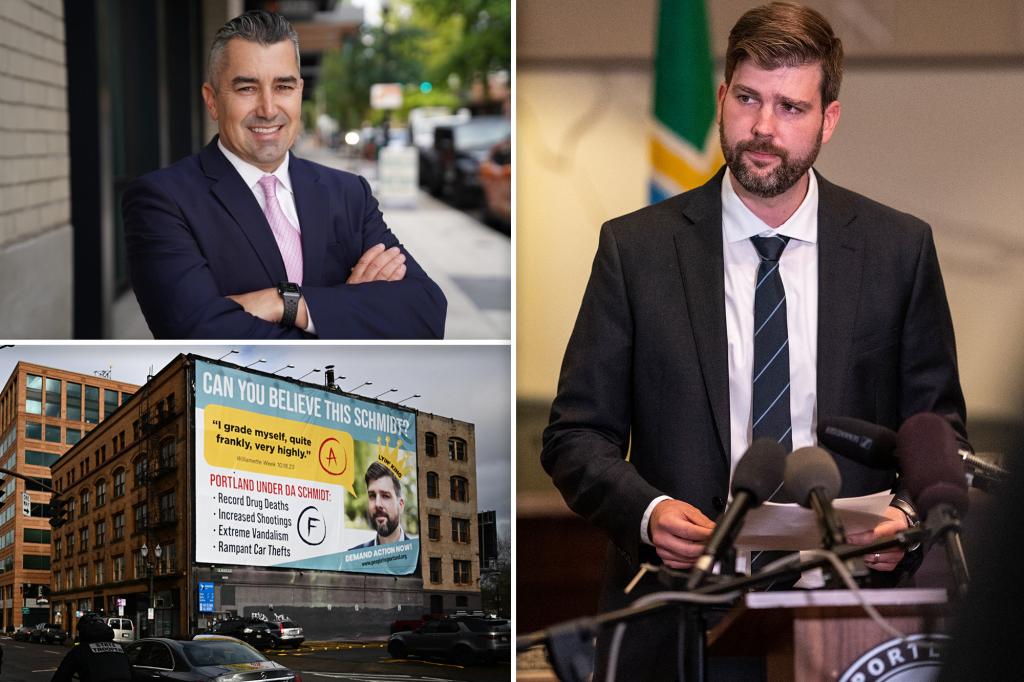Portland’s District Attorney, Mike Schmidt, is facing criticism for allegedly shirking his duties in the drug-ridden city and not being present in the office, with reports suggesting he only swiped his access card into the office about 60% of work days over a six-month period. In contrast, his challenger in the Democratic primary, Nathan Vasquez, clocked in about 90% of the time, emphasizing his consistent presence in the office as a senior prosecutor in the district attorney’s office, which he believes makes him better suited for the job.
Schmidt, who was elected in 2020 during peak remote work, defended his absence in the office by stating that he spends a substantial amount of time meeting with local and state leaders, as well as attending public events and conferences on progressive prosecution. Despite having no caseload, Schmidt’s opponent Vasquez argues that the district attorney should be more hands-on, attributing high turnover in staff to Schmidt’s out-of-office priorities. Vasquez has been endorsed by the union representing prosecutors, claiming that Schmidt’s absence has negatively impacted morale among staffers.
Schmidt’s campaign manager, Andrew Rogers, countered the accusations by stating that Schmidt works outside the office, as well as on nights and weekends, to advocate for policy and resources, and meet with public safety partners and community groups. Schmidt also took three work trips out of state in September and October to attend conferences on progressive prosecution and a specialty court for homeless defendants. The data collected from September to February indicated that Schmidt spent less time in the office compared to Washington County District Attorney Kevin Barton and Clackamas County District Attorney John Wentworth, who were shown to be working in person more often.
The differing perspectives on the district attorney’s role highlight the debate between Schmidt and Vasquez regarding the importance of being present in the office and actively prosecuting cases. Vasquez believes that a more hands-on approach is necessary to provide dedicated leadership and support to victims, while Schmidt prioritizes engaging in policy work and meeting with various stakeholders to advocate for progressive prosecution. The internal office survey revealing complaints about heavy caseloads and lack of supervision further fuels the debate over the current district attorney’s leadership style.
As the Democratic primary approaches, the accusations against Schmidt regarding his absence from the office and lack of morale within the district attorney’s office have become critical points of contention. While Schmidt defends his out-of-office work as essential for advocating for resources and engaging with the community, Vasquez argues for a more present and dedicated leadership style that prioritizes prosecuting serious cases and supporting victims. The outcome of the primary will likely hinge on the contrasting views of how the district attorney should approach the responsibilities of the position.


